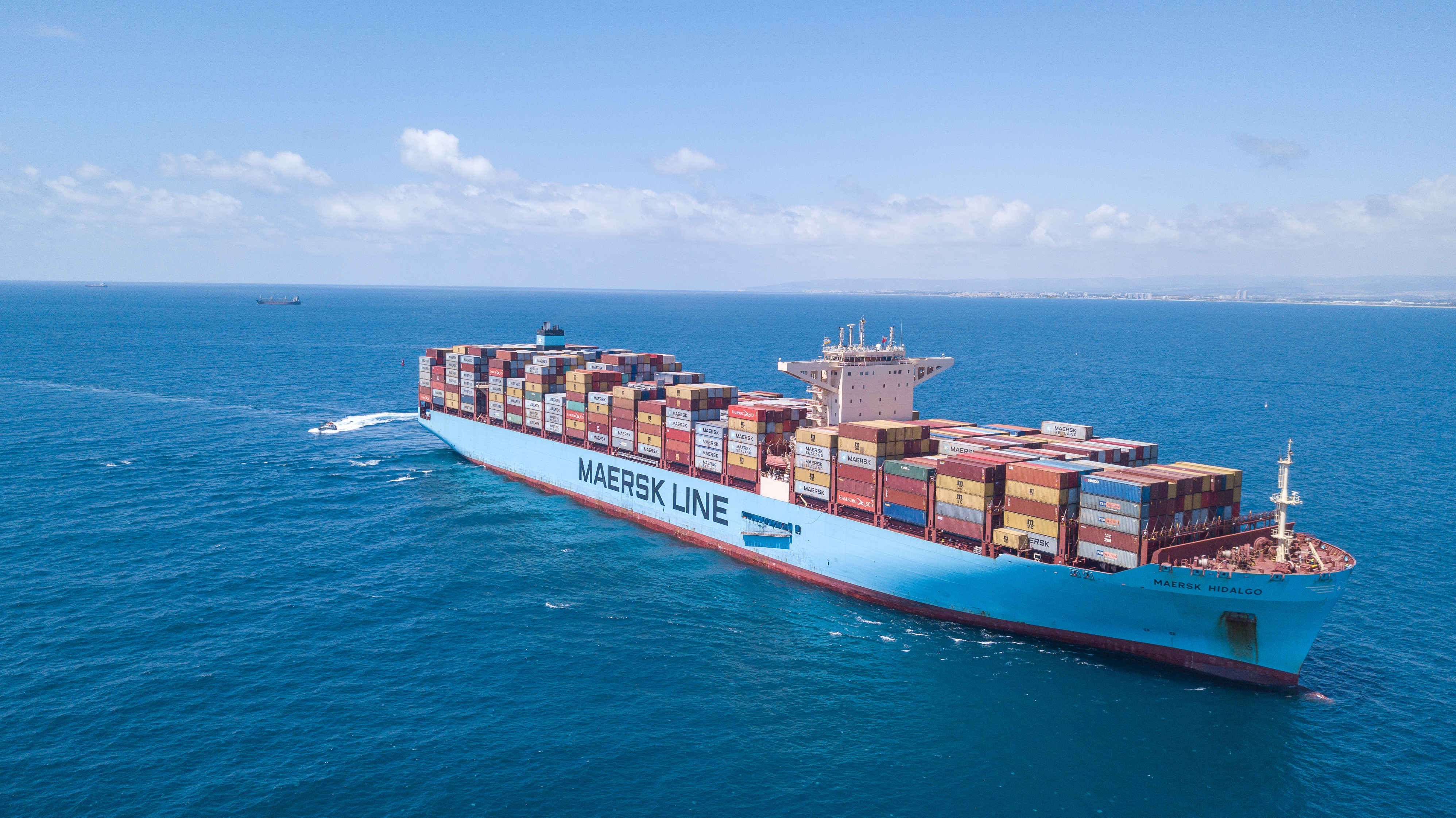
Two of the world’s largest shipping companies announced a new alliance yesterday (17 January), in a surprise move that could lead to a series of changes to the global shipping network.
In a customer advisory notice, Maersk and Hapag-Lloyd announced the ‘Gemini Cooperation’, set to start in 2025.
The companies claim the new agreement will comprise a fleet pool of around 290 vessels, with a combined capacity of 3.4m twenty-foot equivalent unit (TEU) containers. Maersk will deploy 60% of the vessels and Hapag-Lloyd the remaining 40%.
Maersk also claim that the move will bolster its “integrator strategy”, which it says would provide greater flexibility in terms of transport options.
‘Welcome partners’
The pair of shipping companies have also set an “ambitious target” of delivering schedule reliability of above 90% once the network is fully up and running.
Rolf Habben Jansen, CEO of Hapag-Lloyd, said that the agreement would help “further boost the quality we deliver to our customers. Additionally, we will benefit from efficiency gains in our operations and joint efforts to further accelerate the decarbonisation of our industry.”
Vincent Clerc, CEO of Maersk, called Hapag-Lloyd the “ideal ocean partner on our strategic journey.
“By entering this cooperation, we will be offering our customers a flexible ocean network that will be raising the bar for reliability in the industry. This will strengthen our integrated logistics offering and meet our customers’ needs”.
This network will purportedly cover a variety of different routes, notably Asia to both US coasts, as well as running from Asia through the Middle East and India and into Europe and beyond, with 14 shuttle services centred around regional hubs.
Reshuffle
One major consequence of this agreement is that Hapag-Lloyd will leave THE Alliance at the end of January 2025, according to the press release.
The remaining partners in the grouping would be HMM, Ocean Network Express and Yang Ming, all based in Asia.
Veteran shipping watchers believe this could lead to a shakeup of the shipping alliances, as the remaining members of The Alliance would struggle to match either the new Gemini grouping or the Ocean Alliance.
“The pressure is then on these three carriers to either lure a new partner out from Ocean Alliance, or reinvent a new service concept,” Vespucci Maritime chief executive Lars Jensen told Lloyd’s List.
Background
Today’s news was also seen as a surprise by some, despite Clerc repeating that the Danish company would ‘go it alone’ to analysts and investors.
In January 2023, Maersk announced that its 2M Alliance with Mediterranean Shipping Company (MSC) would end at the beginning of 2025.
In a joint statement, MSC and Maersk attributed the split to their pulling in different directions strategically. MSC has been expanding its fleet, while Maersk has maintained roughly the same size and focused on “land-based” logistics as well as the traditional sea freight.



